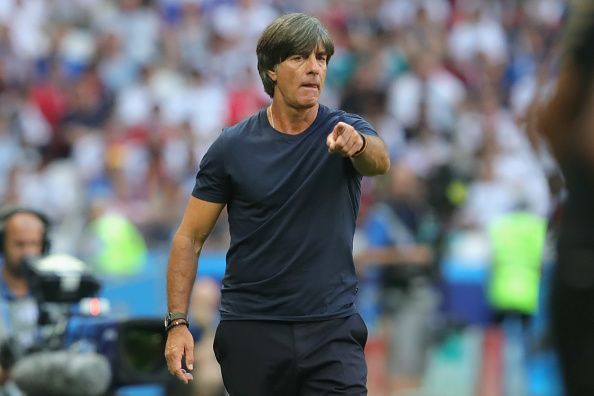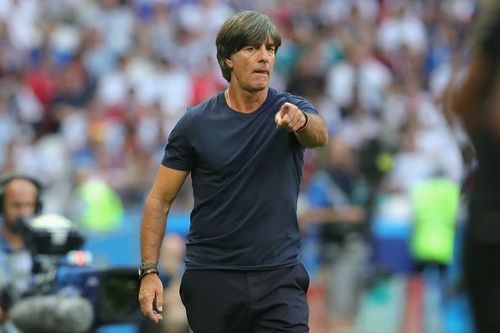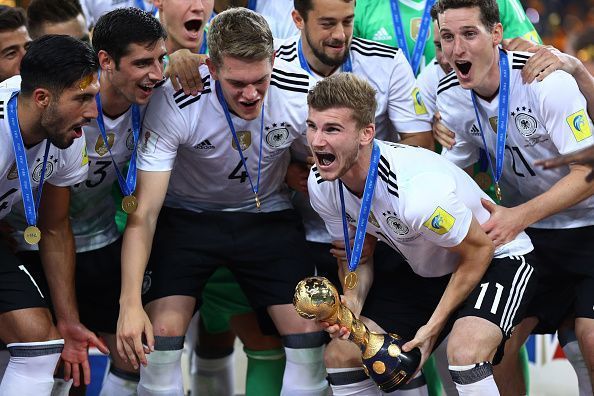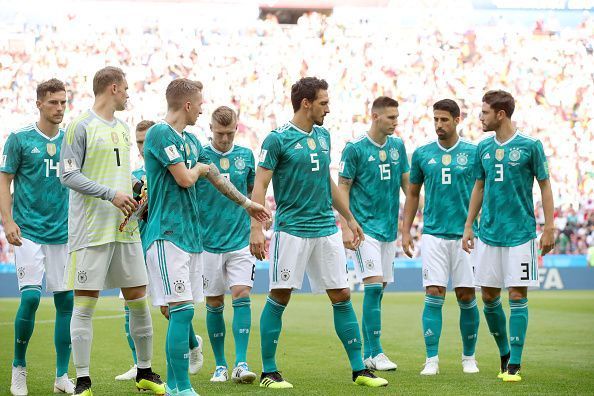
After 12 years of success, Joachim Low needs to try new faces

After serving in the background as assistant to Jurgen Klinsmann during Germany’s semi-final runs at the 2005 Confederations Cup and World Cup a year later on home soil, Joachim Low was thrust into the manager’s hot seat following Klinsmann’s departure after the 2006 World Cup.
Since then, it has been 12 years of constant success, as Low upheld the tradition of Germany’s strong performances at major tournaments, leading them to the final of his first competition in EURO 2008, where they narrowly lost out to Spain in the final.
Joachim Low earned a reputation of focusing on promoting youth, playing attacking fluid football, combined with the German ruthlessness and effectiveness, and this was brought to the fore at the 2010 World Cup in South Africa where the Germans gained widespread accolades for their aesthetic performance en route their semi-final run where they bowed out to eventual champions Spain.
That team had at its core a crop of very young players who had recently triumphed at the European U21 championship, and they were praised for their incredible feat in dispatching more established and experienced opponents in England and Argentina, who they whitewashed with 4-1 and 4-0 scorelines respectively.
All young members of that squad including Manuel Neuer, Mesut Ozil, Thomas Muller, Jerome Boateng, Sami Khedira and Toni Kroos went on to achieve global superstardom, and were once more victims of a semi-final ouster this time to Italy at EURO 2012 before finally getting the trophy their immense talents deserved and ending the nation’s 28-year wait for world domination when they triumphed at the 2014 World Cup by defeating Argentina in the final with a squad largely comprised of their 2010 heroes.
Change is constant in life and in football, youth doesn’t last forever, as the ‘boys’ of 2010 have all matured into men almost a decade later, and it was seen as a risk when it was speculated that Germany would be leaving out its more established stars in the buildup to the 2017 Confederations Cup.
Sticking to his ways, it came as not much of a surprise when Low announced a largely youthful side to represent Germany in Russia, with PSG midfielder Julian Draxler donning the armband as the most experienced player in the team with just 20 caps.
In total, German players had earned fewer than 180 caps between them all, and once again defying the long-held belief that experience wins tournaments, Joachim Low’s men triumphed against much more established internationals in Portugal, Mexico and Chile to lift the 2017 Confederations Cup for the first time in their nation’s illustrious history.

Two days before Lars Stindl dispatched the winner past Claudio Bravo in the Confederations Cup final, Max Meyer and Serge Gnabry led Germany to triumph in the European U21 championship in Poland, defeating a more established Spain side in the final which had the likes of Marco Asensio and Hector Bellerin.
The victory was only Germany's second ever triumph at that stage, coming eight years after Ozil and co won in Sweden.
These victories of youth were seen as indicative of the bright future of German football, and that in keeping to his philosophy, Low would blend them in with their more experienced colleagues.
However, unlike their predecessors of whom eight were selected as part of the World Cup squad a year later and five played as starters in the 2014 triumph, none of the 2017 U21 set was selected to be on the plane to Russia 2018, while only a handful of the 2017 Confederations Cup-winning squad was part of the World Cup, with only Timo Werner playing an active role.
There was widespread furore over his decisions to stick with his trusted players such as Khedira, Ozil, Muller and Boateng, when evidence suggested otherwise, while his biggest criticism came from inexplicably choosing Manuel Neuer as his number one between the sticks despite being out of competitive action for over nine months at the expense of Marc-Andre ter Stegen.

Joachim Low recently celebrated a milestone achievement as he became the man to have overseen the most matches as coach on Germany's illustrious history, and while he has undoubtedly helped the nation achieve much success, he is paying the price for refusing to adapt to changing times.
His fear of failure has led him to deviate from his previous methods of blooding young players, preferring to stick to his tested and trusted guns, but that has indeed backfired as he has led Germany to its worst run of form in recent memory.
Die Mannschaft have had a pathetic year so far, with Tuesday's 2-1 defeat meaning the Germans have lost six competitive matches in a calendar year for the first time in their history.
Before Kroos scored from the penalty spot in France, his country had gone three consecutive matches without a competitive goal, and Griezmann's double means they are winless in four successive matches for the first time in almost 20 years, while also losing consecutive competitive fixtures for the first time since 2000.
They have also managed to keep just one clean sheet in eleven matches this year, which is their worst defensive run since 1964.
It has gone from bad to worse for Joachim Low in 2018, and unfortunately, he has himself to blame, as the 58-year-old deviated from his earlier methods, and much like the mythical Spanish side of 2008-2012 under Del Bosque showed, sticking with the same core of players for so long can only end in ignominy.